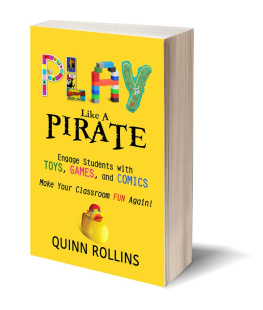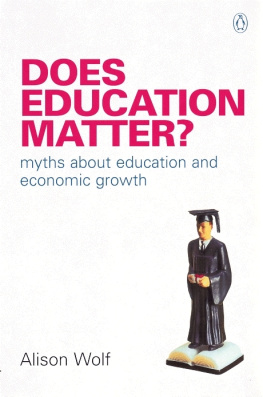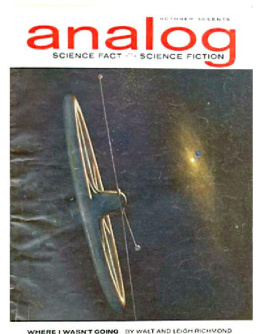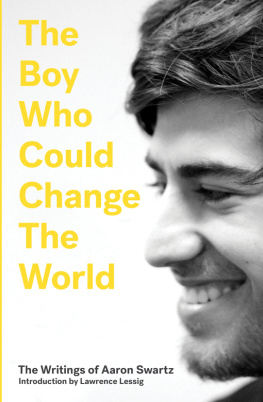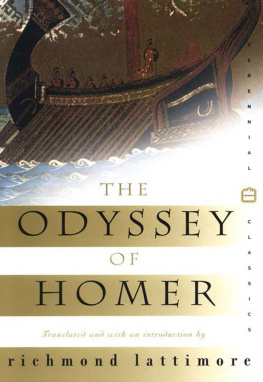Richmond Aaron S. - Great Myths of Education and Learning
Here you can read online Richmond Aaron S. - Great Myths of Education and Learning full text of the book (entire story) in english for free. Download pdf and epub, get meaning, cover and reviews about this ebook. City: Chichester, year: 2016, publisher: John Wiley & Sons, Incorporated;Wiley Blackwell, genre: Politics. Description of the work, (preface) as well as reviews are available. Best literature library LitArk.com created for fans of good reading and offers a wide selection of genres:
Romance novel
Science fiction
Adventure
Detective
Science
History
Home and family
Prose
Art
Politics
Computer
Non-fiction
Religion
Business
Children
Humor
Choose a favorite category and find really read worthwhile books. Enjoy immersion in the world of imagination, feel the emotions of the characters or learn something new for yourself, make an fascinating discovery.

- Book:Great Myths of Education and Learning
- Author:
- Publisher:John Wiley & Sons, Incorporated;Wiley Blackwell
- Genre:
- Year:2016
- City:Chichester
- Rating:5 / 5
- Favourites:Add to favourites
- Your mark:
- 100
- 1
- 2
- 3
- 4
- 5
Great Myths of Education and Learning: summary, description and annotation
We offer to read an annotation, description, summary or preface (depends on what the author of the book "Great Myths of Education and Learning" wrote himself). If you haven't found the necessary information about the book — write in the comments, we will try to find it.
Great Myths of Education and Learning — read online for free the complete book (whole text) full work
Below is the text of the book, divided by pages. System saving the place of the last page read, allows you to conveniently read the book "Great Myths of Education and Learning" online for free, without having to search again every time where you left off. Put a bookmark, and you can go to the page where you finished reading at any time.
Font size:
Interval:
Bookmark:
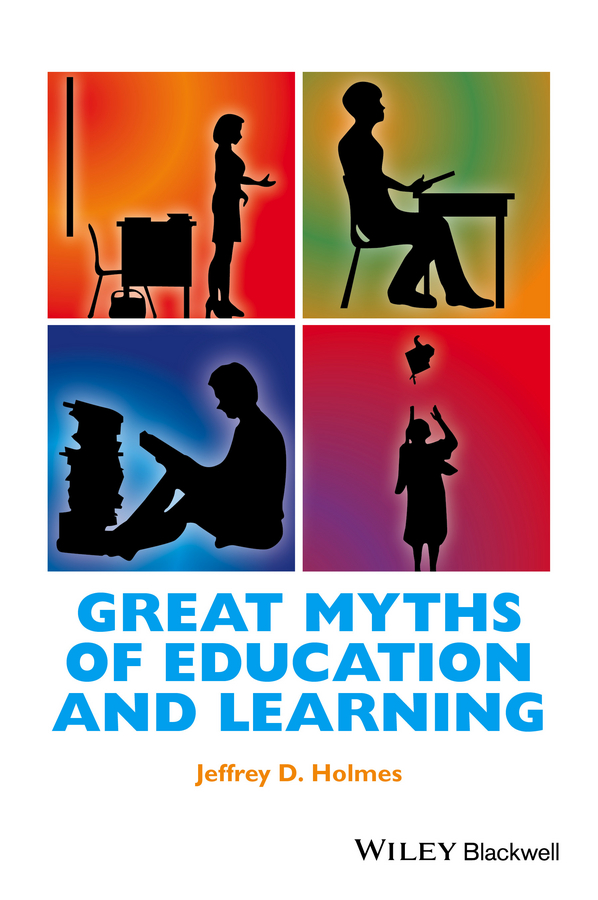
- Chapter 09
Scott O. Lilienfeld
Steven Jay Lynn
This superb series of books tackles a host of fascinating myths and misconceptions regarding specific domains of psychology, including child development, aging, marriage, brain science, and mental illness, among many others. Each book not only dispels multiple erroneous but widespread psychological beliefs, but provides readers with accurate and up-to-date scientific information to counter them. Written in engaging, upbeat, and user-friendly language, the books in the myths series are replete with scores of intriguing examples drawn from everyday psychology. As a result, readers will emerge from each book entertained and enlightened. These unique volumes will be invaluable additions to the bookshelves of educated laypersons interested in human nature, as well as of students, instructors, researchers, journalists, and mental health professionals of all stripes.
www.wiley.com/go/psychmyths
50 Great Myths of Popular Psychology
Scott O. Lilienfeld, Steven Jay Lynn, John Ruscio, and Barry L. Beyerstein
Great Myths of Aging
Joan T. Erber and Lenore T. Szuchman
Great Myths of the Brain
Christian Jarrett
Great Myths of Child Development
Stephen Hupp and Jeremy Jewell
Great Myths of Intimate Relationships
Matthew D. Johnson
Great Myths of Education and Learning
Jeffrey D. Holmes
Great Myths of Personality
M. Brent Donnellan and Richard E. Lucas
Great Myths of Autism
James D. Herbert
50 Great Myths of Popular Psychology, Second Edition
Scott O. Lilienfeld, Steven Jay Lynn, John Ruscio, and Barry L. Beyerstein
Jeffrey D. Holmes

This edition first published 2016
2016 John Wiley & Sons, Inc.
Registered Office
John Wiley & Sons, Ltd, The Atrium, Southern Gate, Chichester, West Sussex, PO19 8SQ, UK
Editorial Offices
350 Main Street, Malden, MA 02148-5020, USA
9600 Garsington Road, Oxford, OX4 2DQ, UK
The Atrium, Southern Gate, Chichester, West Sussex, PO19 8SQ, UK
For details of our global editorial offices, for customer services, and for information about how to apply for permission to reuse the copyright material in this book please see our website at www.wiley.com/wiley-blackwell.
The right of Jeffrey D. Holmes to be identified as the author of this work has been asserted in accordance with the UK Copyright, Designs and Patents Act 1988.
All rights reserved. No part of this publication may be reproduced, stored in a retrieval system, or transmitted, in any form or by any means, electronic, mechanical, photocopying, recording or otherwise, except as permitted by the UK Copyright, Designs and Patents Act 1988, without the prior permission of the publisher.
Wiley also publishes its books in a variety of electronic formats. Some content that appears in print may not be available in electronic books.
Designations used by companies to distinguish their products are often claimed as trademarks. All brand names and product names used in this book are trade names, service marks, trademarks or registered trademarks of their respective owners. The publisher is not associated with any product or vendor mentioned in this book.
Limit of Liability/Disclaimer of Warranty: While the publisher and author have used their best efforts in preparing this book, they make no representations or warranties with respect to the accuracy or completeness of the contents of this book and specifically disclaim any implied warranties of merchantability or fitness for a particular purpose. It is sold on the understanding that the publisher is not engaged in rendering professional services and neither the publisher nor the author shall be liable for damages arising herefrom. If professional advice or other expert assistance is required, the services of a competent professional should be sought.
Library of Congress Cataloging-in-Publication Data
Names: Holmes, Jeffrey D., author.
Title: Great myths of education and learning / Jeffrey Holmes.
Description: 1 | Hoboken : Wiley-Blackwell, 2016. | Series: Great myths of psychology | Includes bibliographical references and index.
Identifiers: LCCN 2015043943 (print) | LCCN 2016001622 (ebook) | ISBN 9781118709382 (hardback) | ISBN 9781118709399 (paperback) | ISBN 9781118760482 (ePub) | ISBN 9781118760505 (Adobe PDF)
Subjects: LCSH: Learning, Psychology of. | Educational tests and measurements. | BISAC: PSYCHOLOGY / Education & Training.
Classification: LCC LB1060 .H636 2016 (print) | LCC LB1060 (ebook) | DDC 370.15/23dc23
LC record available at http://lccn.loc.gov/2015043943
A catalogue record for this book is available from the British Library.
For Sheila, Lila, Mom, and Dad
Human behavior seldom lends itself to black and white assertions. Learning and education in particular involve countless intersecting influences that are often difficult to study in isolation, and that can seldom be portrayed accurately with brief, simplistic claims. Some of the beliefs presented in this book are completely at odds with scientific evidence, while others contain kernels of truth that provide some validity under limited conditions or in certain contexts. The beliefs as stated in the chapter titles are demonstrably at odds with the bulk of scientific evidence. None of the chapters represent (or could represent) a comprehensive review of every existing study on a particular topic, but I have striven to accurately represent the scientific evidence as it currently stands. Some chapters are longer than others reflecting differences in the amount and complexity of the research on various topics.
Scientifically weak ideas often persist rather than fading over time. One reason for this is confirmation bias, in that once we come to believe something, we tend to notice and remember confirming evidence even against a backdrop of broad contrary evidence. Social influences also play a role in maintaining beliefs. Since many of the beliefs examined in this book are widely shared, they are constantly reinforced and strengthened by those around us. Finally, sheer repetition of the ideas over time makes them seem ever more credible. In preparing this book, I have endeavored to allow the existing published scientific evidence on each topic to speak for itself. All beliefs in this book have wide endorsement, and each is represented by invested proponents who would assert that it is a myth to claim that these claims are myths. Many of the beliefs are repeated over and over without supporting evidence. It is not uncommon to read statements asserting that research supports some claim, with no reference to actual research. Claims of the existence of supporting research are then repeated sometimes giving the impression that there is strong evidence and scientific consensus when in fact there is little actual evidence.
One of the most meaningful insights I acquired while researching and writing this book is that the line of belief between adherents and skeptics is often the same line that separates those who conduct the research in a particular area from those who do not. For example, it is difficult to identify neuroscientists experts who study brain function who agree that people are left- or right-brained, or that education can be tailored to activate one brain hemisphere or the other. It is similarly challenging to identify psychometricians those who study the measurement of psychological characteristics who assert that standardized tests do not predict important outcomes including academic performance, or cognitive scientists who assert that teaching should be matched to student learning styles.
Next pageFont size:
Interval:
Bookmark:
Similar books «Great Myths of Education and Learning»
Look at similar books to Great Myths of Education and Learning. We have selected literature similar in name and meaning in the hope of providing readers with more options to find new, interesting, not yet read works.
Discussion, reviews of the book Great Myths of Education and Learning and just readers' own opinions. Leave your comments, write what you think about the work, its meaning or the main characters. Specify what exactly you liked and what you didn't like, and why you think so.

